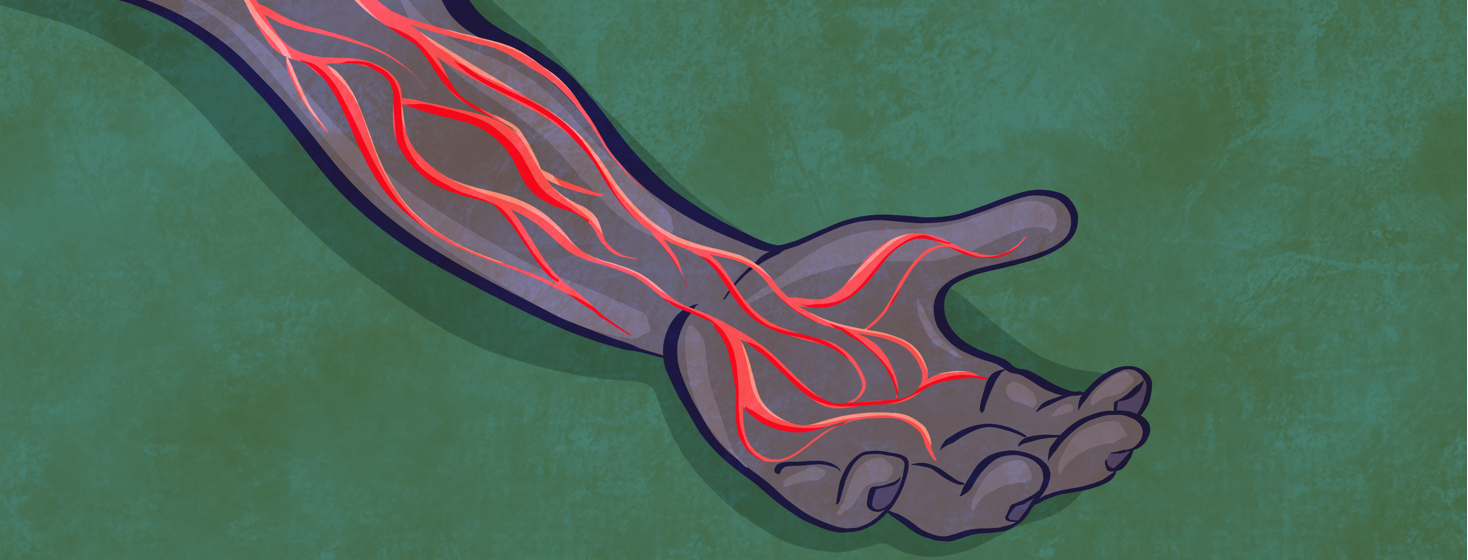Blood Disorders and Lupus
Reviewed by: HU Medical Review Board | Last reviewed: January 2020 | Last updated: May 2023
The inflammation of lupus affects the blood and bone marrow in several ways. These are called hematological complications and comorbidities. People with lupus can become anemic, develop blood clots, make too few white blood cells, or develop a condition called antiphospholipid syndrome.
Blood disorders are found so frequently in lupus that studying the results of blood tests is one of the key ways doctors diagnose someone with lupus.1
How common are blood disorders in lupus?
One study found that nearly 83 percent of people with lupus had a blood (hematological) disorder. The most common conditions found were:
- Anemia (too few red blood cells)
- Leukopenia (too few leukocytes, or white blood cells)
- Thrombocytopenia (too few platelets)
- Antiphospholipid syndrome (too many antibodies in the blood)
Another small study found that of 126 patients, nearly half (47 percent) had neutropenia, 27 percent had thrombocytopenia, 20 percent had lymphopenia, and 13 percent had hemolytic anemia.1
What causes blood disorders in lupus?
Lupus acts on the blood-forming mechanisms of the body in several ways. In some people, the chronic inflammation of lupus suppresses the bone marrow’s ability to make red blood cells causing anemia. But anemia may also be caused by kidney disease if lupus attacks the kidneys. The third way lupus causes anemia is by causing red blood cells to die off too quickly.
The different types of white blood cells and platelets in the body are also vulnerable to lupus inflammation.
What are the symptoms of blood disorders?
The symptoms of blood disorders vary depending on the type of complication. Many of the symptoms also overlap with other complications of lupus. For example, key signs of anemia include fatigue, weakness, pale skin, dizziness, chest pain, and irregular heartbeat.2 Signs of thrombocytopenia include bruising easily, purplish rash on the lower legs, nose bleeds, blood in the urine, and trouble stopping bleeds from cuts.3
How are blood disorders diagnosed?
Blood tests are the primary way blood disorders are diagnosed in people with lupus. Blood tests help your doctor track the levels of several kinds of antibodies and proteins often found in the body of someone with lupus. It also tells your doctor how active your lupus is. The most common blood tests performed to monitor blood issues include:4
- Complete blood count
- Blood chemistry panel
- Comprehensive metabolic panel
- Immunologic tests
- Positive antinuclear antibody (ANA)
- Complement test
How are lupus-related blood complications treated?
Anemia (low red blood cell count)
Treatment for anemia depends on its cause. Options include:5-6
- Inflammation-induced anemia may be treated with steroids.
- Iron pills treat iron deficiency anemia.
- Erythropoietin or darbepoetin encourage the bone marrow to make more red blood cells and are prescribed in those with anemia induced by kidney disease.
- Steroids or a splenectomy (surgery to remove the spleen) may be prescribed if a person’s red blood cells are killed too quickly by antibodies.
- Blood transfusions are rarely used and usually only for severe autoimmune hemolytic anemia
Thrombocytopenia (low platelet count)
Mild thrombocytopenia is common and may not need to be treated. Immunosuppressants may be prescribed.
If thrombocytopenia becomes serious, a high dose of steroids is given in pulses. Pulses last for a few days and are given intravenously (IV) in the hospital. Other options for treating severe thrombocytopenia include IV immunoglobulin, azathioprine, cyclophosphamide, or rituximab. A splenectomy, or surgery to remove the spleen, may be recommended.7-9
Blood clots
Doctors try to treat blood clots before they happen by thinning the blood with anticoagulants, such as heparin and warfarin. Aspirin, which is often used for joint pain and headaches, also acts as an anticoagulant.1
Antiphospholipid syndrome
Antiphospholipid syndrome (APS) is treated with anticoagulants (blood thinners), aspirin, and antimalarials. Women who take oral contraceptives (birth control pills) or hormone replacement therapy may need to stop taking those medicines.11
Leukopenia, neutropenia, and lymphopenia (low white blood count)
Neutrophils, leukocytes, and lymphocytes are all different types of white blood cells. ‘Penia’ means lack of. White blood cells can be damaged by the same immunosuppressants that control the inflammation of lupus, so your doctor may try to reduce how much you are taking. Antibiotics may be prescribed to fight infection, which you might be at risk for if your white blood cells get too low.12 You will also need to practice personal infection control by washing your hands often and avoiding other people who are sick with a cold or the flu.
What are the dangers of blood disorders?
Blood complications can be quite serious and include excessive bleeding, severe bruising, pregnancy complications, heart attack, stroke, pulmonary embolism, deep vein thrombosis, and infections.
